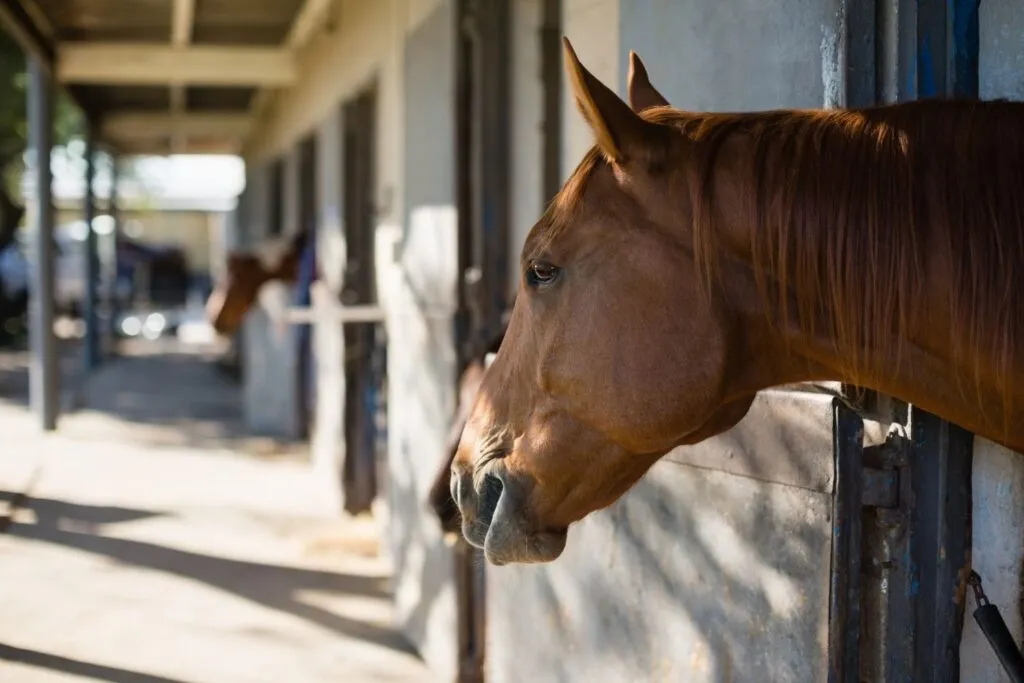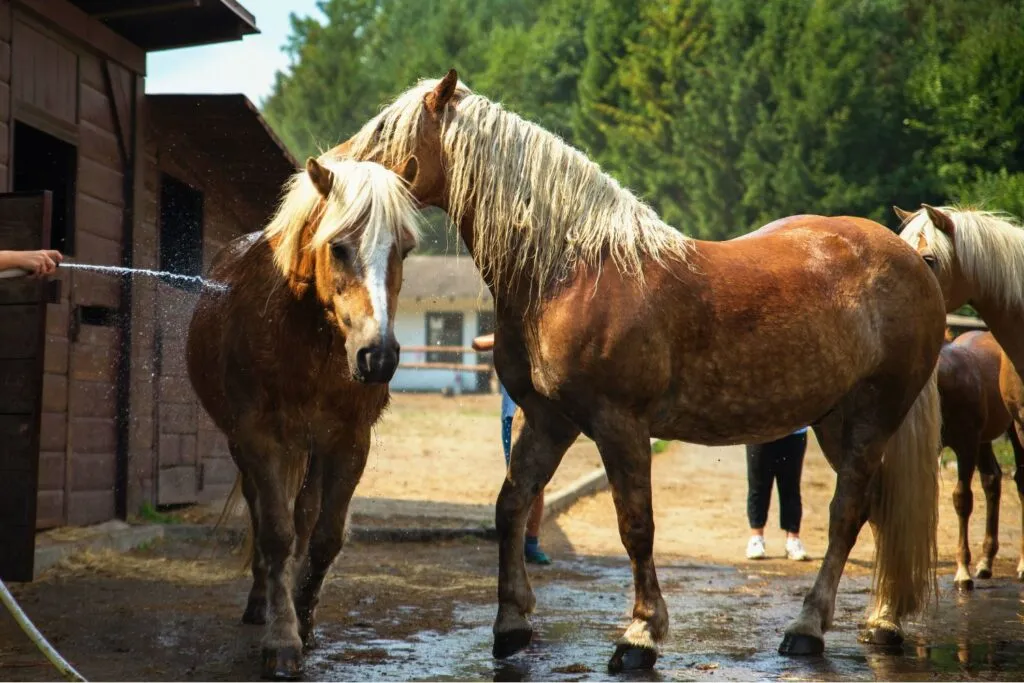Menu

Summer is upon us, and it's wonderful! Even if your horse might be in the pasture all day, it's important that it is looked after daily. Because even though many things are easier in the summer, there are still tasks that you don't escape as a horse owner. Often the horse is more hands-on in the winter, but it's also important that the horse is checked in the summer.
We've put together a list of things you should remember when you come to the stable over the summer.
There are a number of diseases and similar that often occur in the summer. Laminitis, eczema, or eyes that run are just some of the things you should pay attention to during the summer. You should do this naturally year-round, but some diseases are most often just summer-related. Check your horse for small scratches and possible infections.
A good rule of thumb is that you should know your horse's normal condition. Horses can, for example, have a pulse in their legs when it's hot, without it meaning that they have laminitis. In addition, it's important that you keep an eye on whether your horse's eyes are watering, as it could be conjunctivitis - and it doesn't get any better if insects land.
If you have a horse that wears, for example, a fly mask, muzzle, or insect blanket, it's important that you keep an eye on whether the equipment fits and is positioned correctly. If you keep an eye on this regularly, you can avoid your horse getting wounds or the like from the equipment. This, of course, also applies if the horse is wearing a halter. Check that all buckles are intact, so they do not irritate your horse or cause damage.
Perhaps the bright summer is the time when you can check your riding equipment and possibly clean and polish it.
If your horse doesn't come in at night, you've probably emptied the box of bedding. Maybe you only use it briefly for feeding or similar, but remember that the same rules apply as in winter. That is, you still have to remove droppings both in the stable aisle and in the box. And now that you are in the stable, remember to sweep when you've had the horse inside. The same applies if you groom outside - remember to sweep up loose hair and remove droppings.
Also read: Signe saves horses in Spain: “My dream is that there won’t be a need for us”
Summer can also be used to go through the stable, clean the boxes, and possibly whitewash the stable. Please check that all box doors work, all troughs are secure, water cups work, and that there are no sharp objects or the like that the horse can get injured on. Now is the time to fix it before the horses have to come in for the night again.

Keep an eye on your horse's pasture. This means that you should always ensure that the fence is intact, that there is electricity in the fence, the horses have access to clean water, that there are no loose straw ropes or similar in the pasture, and maybe droppings also need to be removed from the pasture. You should also ensure that there are no poisonous plants in the pasture.
When it's very hot in the summer, you should ensure that your horse can seek shade either under large trees or in a shed. Alternatively, it may be necessary to keep it inside the stall during the hottest hours of the day.
At many stabling places, the horses get fed twice a day - or more - during the winter when the horses come in for the night. If, however, you have to do the feeding in the summer, it could be well worth giving your horse's feed plan a service check. Does it need more or less of something when it's summer? Does it, for example, need electrolytes or salt? Do you ride more or less than you do in the winter? In addition, mash can be a good way to help your horse get a little extra fluid in the summer heat.
It's neither pleasant for the horse nor the rider to ride in the middle of the day when it's hottest. Therefore, you could try to plan your day so that your ride takes place at the extremes of the day. That is either early morning or late evening. If you have to ride in the middle of the day, you should adjust your training volume to the heat. Take plenty of walking breaks to avoid heatstroke - for both yourself and your horse.
Also read: 5 Alternative Ways to Cool Your Horse Down in the Summer Heat
Over the summer, there are many insects that can be annoying for both you and your horse. Therefore, you should use a good insect spray if you find that there are many insects in your stable or on your ride. In addition, you should be aware of ticks and horseflies - for both yourself and your horse.
Water has many functions in the summer. Of course, it's important that your horse always has clean water available round the clock. That is, water without algae, bacteria, or anything else in it, and therefore you should remember to clean the horse's water trough as needed. A horse needs, on average, around 25 litres of water per day - depending on temperature, size, and training level. Some horses can be encouraged to drink a little more if you pour a little apple juice or molasses in the water, but avoid making this a habit.
You can also use water to cool your horse as needed, but be aware of potential drought periods, and a good way to save water is to use a bucket and sponge.

A horse's hooves often grow faster in the summer, and therefore it may be that you need to have your farrier or hoof trimmer visit more often than you do in winter.
Even if your horse has the opportunity to seek shade in the pasture, it may be necessary with extra sun protection, especially for pink muzzles. You can either use sunscreen, zinc or specific masks that can protect your horse from the sun's rays.
Have a splendid summer - and do remember that many of our tips apply to both horse and rider.